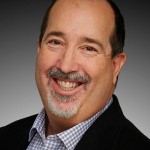
The employees of my store regularly work Monday through Friday. Every third Saturday of the month, I hold a staff meeting for all of my employees. I pay my employees for the actual length of the meeting, but last month the meeting ended 30 minutes early, and one of my employees claims I must pay for the full two hours. Is this true?
There is a requirement in the California Wage Orders referred to as “reporting time pay”—employers must pay employees a minimum of half their regularly scheduled hours of work, but in no case less than two hours.
A California appellate court, however, ruled in the case of Aleman v. AirTouch Cellular, 209 Cal.App. 4th 556 (2012), that where the employer schedules such meetings in advance, reporting time pay is not required so long as the employee works at least half of the hours scheduled for the meeting.
In your case, you scheduled the meeting in advance, and according to your question, the meeting lasted more than one hour (which is more than half of the two hours scheduled); therefore, you would not be obligated to pay reporting time pay.
You would be correct in paying your employees for the actual length of the meeting, provided it exceeds one hour.
Column based on questions asked by callers on the Labor Law Helpline, a service to California Chamber of Commerce preferred and executive members. For expert explanations of labor laws and Cal/OSHA regulations, not legal counsel for specific situations, call (800) 348-2262 or submit your question at www.hrcalifornia.com.

